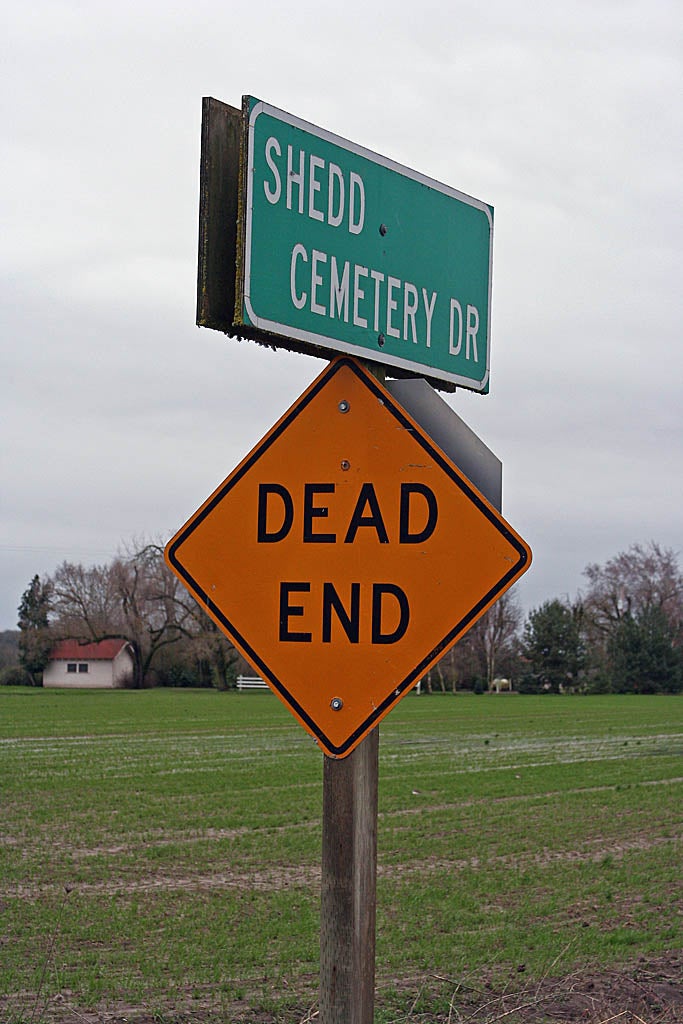Over at the Atlantic are a few articles suggesting that future cities may no longer have street signs. As the argument goes, driverless automated cars are going to depend on high-precision maps. Such maps will be incredibly valuable to companies like Google and Apple, who may no longer be willing to give them away for free to consumers. Or, in a more cynical twist, who may want encourage use of their transit services by eliminating street signs as competition:
In America, street signs are yoked to signage built for human drivers, mounted atop traffic signals and stop signs. Once those devices aren’t needed, their attached markings might also disappear. Perhaps tech giants could persuade municipalities to remove street signs and markers to realize cleaner, less distracting urban conveyance via the synergy of app-street-and-car transit networks.
To further encourage their disappearance, the article point out that we must also consider the rise of augmented reality. For now, we are using our smartphones to discover virtual Pokemon Go figures. But instead of Pikachu on the screen, why not virtual street signs? Or virtual traffic police directing pedestrians? Assuming there's anyone left wandering sidewalks after the driverless car revolution.

What struck me about these pieces was the idea of anticipating the future obsolescence of a technology. Is it natural to expect obsolescence, even something so prosaic as street signs, which have existed for millenia and would seem invulnerable to the disruptive effects of Silicon Valley? The author of one piece points out that "previously essential technology goes away when people stop using it", such as phone booths and telephone poles. Or is this anticipatory vision more of a self-fulfilling prophecy? To quote John Perry Barlow, "the best way to invent the future is to predict it". Make a persuasive prediction, and people will make it happen. The same author who felt obsolescence was inevitable also based their future on the words of Uber's head of mapping, who may well have a vested interest in ensuring people can't find their way around a city.
What do you think? Should we say so-long to street signs?